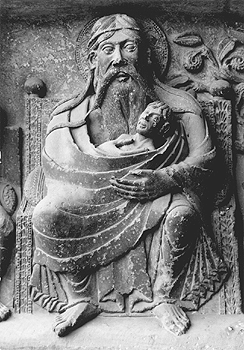Post by Zadkiel on Feb 21, 2016 14:03:40 GMT
Today, people tend to think of myth as a false story told in ancient times to explain the workings of the natural world before we had science. Most cultures have a foundation myth that explains and legitimizes the culture.
From times immemorial, we have been preoccupied with supernatural concepts, hence the need for myth; not myth in the sense of simply being a false narrative to sooth our insecurity, but myth in the sense of something mysteriously truthful that can poetically help us understand our place in life. In other words, don’t think in terms of Athena being born from the forehead of Zeus, think of Homer or the Psalms.
This is an argument for the value of art in its broadest sense. Myths have been artfully created over time and throughout human history to explain our experience of existence in a material world because we are at the limits of our reason and sense perception. But we sometimes feel that these tools are insufficient and that more is needed to express and explain to each other what we experience.
Christianity has dominated the central myths of western man for two millennia; combining Mesopotamian, Egyptian, Hebrew, Greek, Eastern and Roman myths with its own doctrine-making. As such, it has provided a magnificent narrative about how we got here, how we became flawed in our materiality and how we can return to our true selves.
Religious belief of some kind acknowledges the supernatural nature of our experience and therefore expands "truth" in its explanation of human reality than reason alone can provide. The Dali Lama once commented that westerners should remain Christian and not try to convert to Buddhism because Christianity is a beautiful version of the truth as western culture understands it. We all need true myths, but they must contain the little magical power they need to appeal to our sense of adventure.

From times immemorial, we have been preoccupied with supernatural concepts, hence the need for myth; not myth in the sense of simply being a false narrative to sooth our insecurity, but myth in the sense of something mysteriously truthful that can poetically help us understand our place in life. In other words, don’t think in terms of Athena being born from the forehead of Zeus, think of Homer or the Psalms.
This is an argument for the value of art in its broadest sense. Myths have been artfully created over time and throughout human history to explain our experience of existence in a material world because we are at the limits of our reason and sense perception. But we sometimes feel that these tools are insufficient and that more is needed to express and explain to each other what we experience.
Christianity has dominated the central myths of western man for two millennia; combining Mesopotamian, Egyptian, Hebrew, Greek, Eastern and Roman myths with its own doctrine-making. As such, it has provided a magnificent narrative about how we got here, how we became flawed in our materiality and how we can return to our true selves.
Religious belief of some kind acknowledges the supernatural nature of our experience and therefore expands "truth" in its explanation of human reality than reason alone can provide. The Dali Lama once commented that westerners should remain Christian and not try to convert to Buddhism because Christianity is a beautiful version of the truth as western culture understands it. We all need true myths, but they must contain the little magical power they need to appeal to our sense of adventure.




